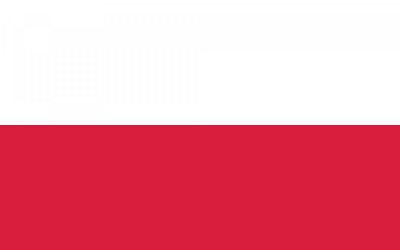The Act of 5th November of 1916 was a declaration of Emperors Wilhelm II of Germany and Franz Joseph of Austria. This act promised the creation of the Kingdom of Poland out of territory of Congress Poland, envisioned by its authors as a puppet state controlled by the Central Powers. The origin of that document was the dire need to draft new recruits from German-occupied Poland for the war with Russia. Even though the act itself expressed very little in concrete terms, its declaration is regarded as one of main factors in the Polish efforts to regain independence. Despite official statements, the German Empire really planned to annex up to 30,000 km of prewar Congress Poland, with expulsion of between 2 and 3 million Poles and Jews out of these territories to make room for German settlers.Following the declaration, on 6 December 1916, the Provisional Council of State was created, with Waclaw Niemojowski as its president, and Jozef Pilsudski as chairman of its Military Commission. Units of the Polish Military Organisation were put under management of the Provisional Council of State, but the council itself had very limited authority and, after the oath crisis was disbanded in August 1917. It was followed by the Temporary Committee of the Provisional Council of State (Komisja Przejciowa Tymczasowej Rady Stanu) and then by the Regency Council.
The Act of 5th November had a wide impact among the Allies of World War I. In December 1916, the Italian Parliament supported the independence of Poland, and in early 1917, Tsar Nicholas II of Russia returned to the idea of independent Poland, tied in a union with the Russian Empire that Russian officials proposed already in 1914. At the same time, US President Woodrow Wilson also publicly expressed his support of a free Polish state.
Following the Armistice of 11 November 1918 ending the World War I, in spite of the previous initial total dependence of the kingdom on its sponsors, it ultimately served against their intentions as the cornerstone proto state of the nascent Second Polish Republic, the latter composed also of territories never intended by the Central Powers to be ceded to Poland.
The Kingdom of Poland (Polish: Królestwo Polskie, German: Königreich Polen), also known informally as the Regency Kingdom of Poland (Polish: Królestwo Regencyjne), was a short-lived polity and client state of the German Empire during World War I. It was situated within the Government General of Warsaw.
The decision to propose the restoration of Poland after a century of partitions was taken up by the German policymakers in an attempt to legitimize further imperial presence in the occupied territories and create a buffer state to prevent future wars with Russia. The plan was followed by the German propaganda pamphlet campaign delivered to the Poles in 1915, claiming that the German soldiers were arriving as liberators to free Poland from subjugation by the Russian Empire. However, the German High Command under Erich Ludendorff also wanted to annex around 30,000 square kilometers of the territory of former Congress Poland, roughly corresponding the area given to Prussia after the Third Partition of Poland in 1795. Even though e.g. demographics of Poznań show that policies of ethnic cleansing were new and unusual for the German government, apparently according to several historians it was planned to evict up to 3 million Poles and Jews to make room for German colonists in the so-called Polish Border Strip plan. The German government used punitive threats to force Polish landowners living in the German-occupied Baltic states to relocate and sell their Baltic property to the Germans in exchange for entry to Poland. Parallel efforts were made to remove Poles from Polish territories of the Prussian Partition.Following the Armistice of 11 November 1918 signed by the Allies with imperial Germany, which ended World War I, the area became part of the nascent Second Polish Republic.

1916Nov, 5
The Kingdom of Poland is proclaimed by the Act of 5th November of the emperors of Germany and Austria-Hungary.
Choose Another Date
Events on 1916
- 9Jan
Gallipoli Campaign
World War I: The Battle of Gallipoli concludes with an Ottoman Empire victory when the last Allied forces are evacuated from the peninsula. - 21Feb
Battle of Verdun
World War I: In France, the Battle of Verdun begins. - 25Feb
Battle of Verdun
World War I: The Germans capture Fort Douaumont during the Battle of Verdun. - 9Apr
Battle of Verdun
World War I: The Battle of Verdun: German forces launch their third offensive of the battle. - 31May
Battle of Jutland
World War I: Battle of Jutland: The British Grand Fleet under the command of John Jellicoe, 1st Earl Jellicoe and David Beatty, 1st Earl Beatty engage the Imperial German Navy under the command of Reinhard Scheer and Franz von Hipper in the largest naval battle of the war, which proves indecisive.

 English
English  español
español  français
français  português
português  русский
русский  العربية
العربية  简体中文
简体中文 